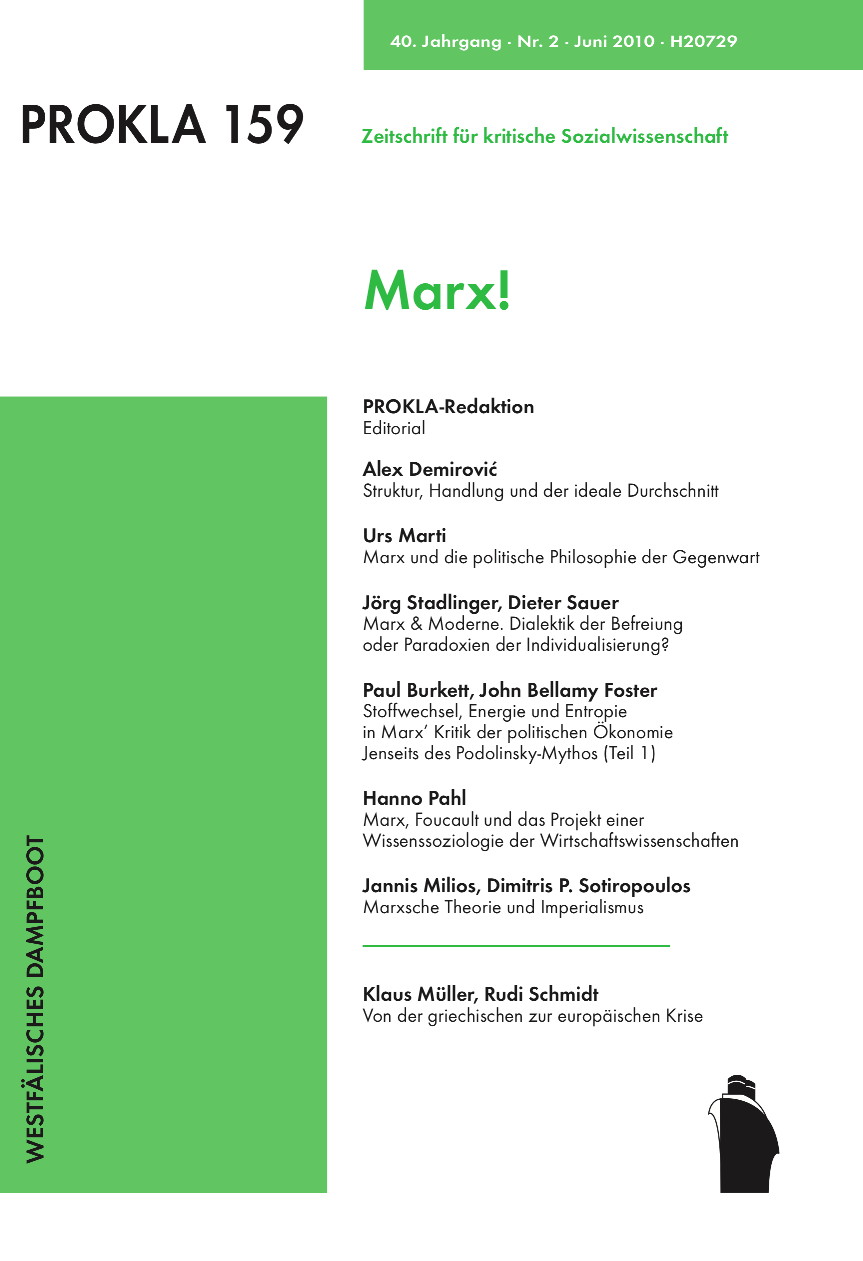Struktur, Handlung und der ideale Durchschnitt
DOI:
https://doi.org/10.32387/prokla.v40i159.390Schlagwörter:
Struktur, Handlung, Marx, Politische ÖkonomieAbstract
The first part of the article argues in favor of an anti-hermeneutic strategy of reading Marx, taking into account the always shifting character of the meaning of his theory due to historical transformations generated by social struggles and the partisan and interventionist character of any Marxist theory. This has effects upon how the relation of structure and agency has to be conceptualized as a specific historical relation – very often ignored by a misled sociological reading of Marx in the tradition of Weber and Parsons. Decisive is the argument that in Marx’s theory the differentiation and opposition of structure and agency is in itself not pertinent but has to be explained in terms of historical struggles. At the centre of the argument is a reformulation of the law of value as a logic of collective practice and the important meaning of what Marx calls the “ideal average” as a subject of his theory.





